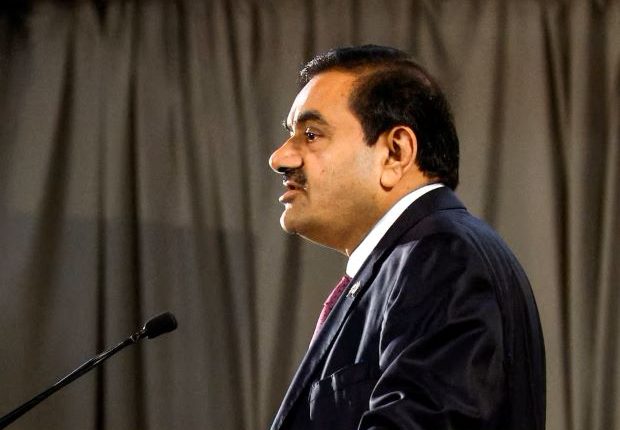Gautam Adani’s key man risk is hard to contain
By Antony Currie and Shritama Bose
MELBOURNE/MUMBAI – The United States has opened a can of worms for the Adani Group. On Wednesday (20), federal prosecutors accused, the conglomerate’s chair, Gautam Adani, and several others of fraud by offering some $265 million in bribes to Indian government officials to secure solar-power deals. The consequences of the indictment will be more far-reaching than those induced by short-seller Hindenburg Research in early 2023. And the tycoon’s unusually tight ownership of the empire he built complicates matters.
The most immediate problem Adani’s 10 or so listed companies will face is funding, including potentially for refinancing some of their $29 billion of total borrowings. Adani Green Energy, which is at the centre of the new allegations, already on Thursday (21) pulled a $600 million bond issue that had only just been priced hours earlier. Adani stocks plummeted up to 23% on Thursday. The group said the allegations against its directors were baseless and denied them.
The short-seller attack almost two years ago similarly led its flagship company, Adani Enterprises, to abort a capital raise, and briefly turned off other financing spigots. Funding trickled back: within a month Piyush Gupta, CEO of Singapore’s DBS Group, came to Adani’s defence,, arguing the financial risk of making secured loans to the conglomerate was acceptable. And a handful of global investors including Abu Dhabi-based International Holding Company struck some private deals. But it took longer for Western lenders like Deutsche Bank and Barclays to warm back up; and the first equity market transaction only occurred in July this year, when Adani Energy Solutions sold $1 billion of new stock.
A criminal indictment from New York-based prosecutors at the Department of Justice, though – as well as civil charges from the US Securities and Exchange Commission – is a great deal more concerning. It’ll be harder for bankers like Gupta to fob that off as quickly as a short seller’s accusations. And all else being equal, any financial institutions based, registered, traded or wanting to do business in the United States may be leery of engaging with Adani companies until the US Department of Justice and SEC cases are done and dusted.
There’s also a danger that governments of other countries where Adani’s businesses operate get involved in the current investigations or start their own. The conglomerate runs a coal-mining business in Australia, for example, is invested in ports in Israel and Sri Lanka and recently proposed a lease to run the main airport in Kenya.
Usually, the obvious way for a company to limit the damage of such probes is to part ways with the executives and board members concerned as soon as possible. Indeed, the SEC complaint seeks to bar Adani and the others from being officers and directors.
Trouble is, Gautam Adani and his family own nearly 70% of the group’s listed units. So even if he ceases to have an official role in the empire he built, or temporarily steps back, the patriarch will still be able to exercise his influence over decisions – and one of his relatives is likely to be his successor. His key man risk is particularly hard to contain.
US prosecutors on Nov. 20 charged Gautam Adani, chair of Indian conglomerate Adani Group, of committing securities and wire fraud between 2020 and 2024. They allege that Gautam Adani and seven other defendants, including his nephew Sagar Adani, agreed to pay some $265 million in bribes to Indian government officials to win solar-power contracts that were expected to generate around $2 billion in profit over 20 years for one of the chair’s companies, Adani Green Energy.
Gautam and Sagar Adani have also been charged in relation to the alleged scheme by the US Securities and Exchange Commission. The regulator accuses them of engaging in the fraud while raising $175 million from US investors as part of a $750 million bond offering by Adani Green in September 2021.
“The Adani Green offering materials included statements about its anti-corruption and anti-bribery efforts that were materially false or misleading in light of Gautam and Sagar Adani’s conduct,” the SEC said.
The SEC’s complaint against Gautam and Sagar Adani seeks permanent injunctions, civil penalties, and officer and director bars. The Adani Group said the allegations against directors of Adani Green were baseless and denied them.
On Nov. 21 Adani Green cancelled plans to raise $600 million in bonds, Reuters reported, hours after it had been priced.
-Reuters



Comments are closed, but trackbacks and pingbacks are open.